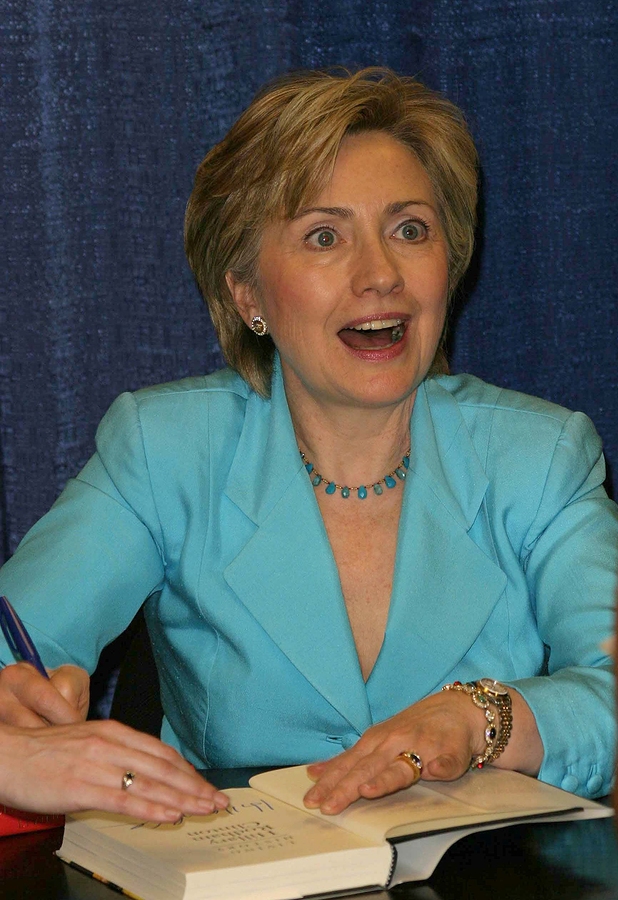Clinton Hints At Buy-And-Hold Capital Gains Tax Plan

©2015 Bloomberg News
NRG1CU6JTSE8
(Bloomberg Politics) — Democratic presidential candidate Hillary Clinton suggested Monday that she may endorse lower capital gains taxes on long-held assets as a way to discourage a quick-profits mentality in the U.S. economy.
That could mean a sliding scale of tax rates on investments, offering a tax break to patient investors while continuing to subject the profits from fast trades to the highest marginal tax rates. Today’s system, by contrast, features a preferential tax rate on assets held more than a year. But it makes no distinction beyond that. Gains on stocks held for 366 days are taxed at the same rate as those held 36 years.
“I will soon be proposing a new plan to reform capital gains taxes to reward longer-term investments that create jobs, more than just quick trades,” Clinton said during an economic policy speech in New York.
Clinton didn’t offer further details, and her campaign didn’t immediately respond to questions, but Neera Tanden, one of her most prominent outside advisers, last month proposed a sliding-scale capital gains tax in which the rate would decline the longer an asset is held.
“Once an investor holds a share past the one-year mark, the tax code provides no incentives to maintain the position any longer,” Tanden and investor Blair Effron of Centerview Partners wrote. “A sliding-scale capital gains tax would involve more time horizons, extend further into the future, and avoid the kinds of kinks in tax schedules that policy wonks hate.”
Under current law, the top capital gains tax rate on assets held for less than a year is 43.4 percent. That rate drops to 23.8 percent for assets held more than a year.
If this proposal sounds familiar, it is. President Bill Clinton signed a law in 1997 that would have imposed an 18 percent top capital gains tax rate on assets purchased after 2000 and held for at least five years. The Bush tax cuts of 2003 erased that idea and replaced it with lower rates for all.
It’s also unclear how big a practical effect a sliding- scale tax rate would have. Many stocks already aren’t subject to taxes at all because they’re held by university endowments, retirement accounts and pension funds.
Unlike Republicans who have proposed eliminating the capital gains tax, Clinton has a proposal that would limit how much the wealthiest households could benefit from lower capital gains taxes.
She backs the Buffett Rule, an Obama policy named for billionaire (and Clinton backer) Warren Buffett that calls for a minimum 30 percent tax on the highest-income households. Depending on where she sets the capital gains rates, the Buffett Rule could claw back some of the benefits.
Clinton’s reference to “quick trades” is “silly'” because the fastest trades are subject to high tax rates already, said Malcolm Salter, a Harvard Business School professor who has proposeda gradually declining tax rate for capital gains that would hit zero after five years. Still, he said, the idea of preferential capital gains tax rates for long-held assets has promise as a way of encouraging companies to change executive compensation practices. And, he said, it could shift the political discussion on capital gains out of the usual back-and- forth debate between the merits of the growth that could be spurred by lower rates and the revenue that would be lost to the Treasury.
But Salter questioned whether Clinton’s middle road—offering investors a break on capital gains taxes in return for more long-term investments—is salable in the current political environment. The idea should be raised, he said, in the context of a broader discussion about the “institutional corruption that’s eating away at the core” of American capitalism. “The Democrats would have a very difficult time trying to sell this because most people don’t understand what’s at stake,” said Salter, who said he hasn’t been in touch with Clinton’s team.
That “quick trades” line also drew a quick rebuke from another target of Clinton—the private equity industry. Clinton’s move to tax carried interest as ordinary income, not capital gains, is at odds with her stated desire for patient investing, said Steve Judge, president of the Private Equity Growth Capital Council. “Taxing long-term carried interest as anything other than a long-term capital gain would deprive private equity, venture capital, real estate, and many other businesses of the same treatment available to other kinds of businesses that sell a long-term capital asset for a profit,” he said.
It’s not clear if Clinton will back the changes to capital gains taxation that President Barack Obama proposed earlier this year.
The president wants to raise the top tax rate to 28 percent and change a rule that lets people pass appreciated assets to their heirs at death without paying income taxes on the gains.
—Jennifer Epstein contributed to this story.
CORRECTION: An earlier version of this story incorrectly characterized Obama’s plan on capital gains.
To contact the author on this story: Richard Rubin at rrubin12@bloomberg.net To contact the editors on this story: Kathy Kiely at kkiely9@bloomberg.net Jodi Schneider at jschneider50@bloomberg.net David Knowles at dknowles9@bloomberg.net







No Comment